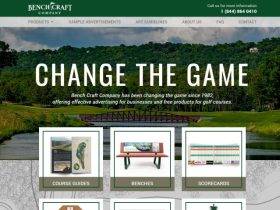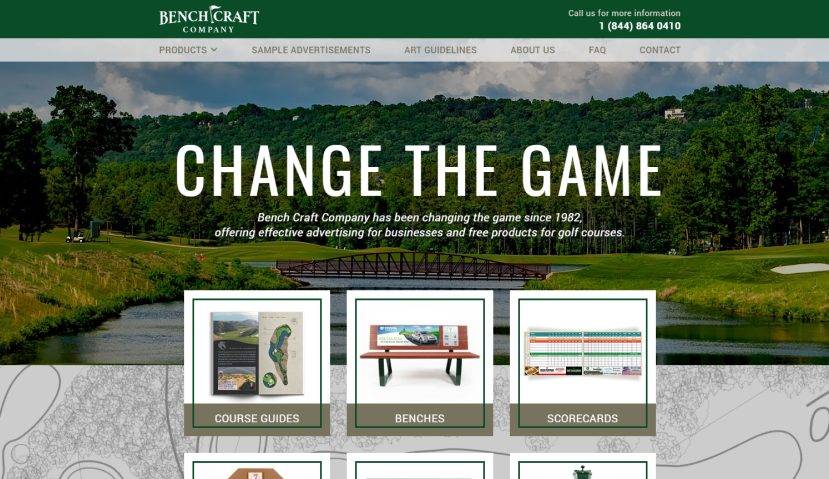Within the realm of advertising and marketing, controversies occasionally arise that bring attention to the ethical practices and conduct of certain companies. One such instance is the Bench Craft Company lawsuit that has recently captured the attention of both the business community and the general public. This lawsuit has shed light on the practices of the company and ignited heated discussions regarding its alleged misconduct. In this article, we will delve into the details of the Bench Craft Company lawsuit, exploring the various facets of the controversy and allowing readers to form their own opinions.
1. The Bench Craft Company’s Accusations:
When examining the Bench Craft Company lawsuit, it is essential to first understand the core accusations brought forth against the organization. The lawsuit alleges that the company engaged in deceptive sales practices, misleading its customers and violating consumer protection laws. These accusations have prompted a closer look at the company’s advertising methods and sales model.
2. The Impact on Business Community:
Unsurprisingly, the Bench Craft Company lawsuit has sent shockwaves throughout the business community. Many companies in the advertising and marketing industry are closely following the developments of this case, as it has the potential to set a precedent for future lawsuits implicating similar practices. The controversy has prompted a reevaluation of ethical standards within the industry, forcing businesses to ensure their practices are transparent and in line with consumer expectations.
3. Legal Standpoint:
From a legal standpoint, the Bench Craft Company lawsuit raises numerous questions regarding the limits of advertising practices. Courts will be examining whether the company’s tactics infringe upon consumer rights and whether Bench Craft Company will be held accountable for any potential misconduct. Legal experts are closely monitoring the case, eagerly awaiting its outcome, as it will undoubtedly shape future interpretations of advertising laws.
4. Consumer Perspective:
For consumers, the Bench Craft Company lawsuit is a stark reminder of the importance of vigilance when engaging with businesses. Many individuals have shared stories of feeling deceived by the company’s sales practices, leading to a sense of betrayal and mistrust. This case urges consumers to research companies thoroughly, read contracts carefully, and challenge any misleading or deceptive advertising strategies.
5. Company Response:
As expected, the Bench Craft Company has defended its practices and vehemently denied all allegations put forth in the lawsuit. The company asserts that it operates within legal boundaries and has done its utmost to ensure transparency in its advertising endeavors. Bench Craft Company maintains that it will vigorously fight the lawsuit in court and seek to vindicate its reputation and practices.
6. Brand Reputation:
The Bench Craft Company lawsuit raises concerns regarding brand reputation. As controversy surrounds the organization, consumers and business partners may question their association with the company. Negative publicity can have severe consequences for Bench Craft Company, even if the lawsuit eventually rules in their favor. Rebuilding trust and reestablishing its brand image will undoubtedly be a challenging task.
7. Precedent Setting Case:
Legal experts anticipate that the Bench Craft Company lawsuit could set a precedent for future cases involving deceptive advertising practices. Should the court rule in favor of the plaintiffs, it may signal a shift in the legal landscape, with businesses being held to higher ethical standards. The case has significant implications for the advertising industry, forcing companies to carefully reevaluate their practices to avoid potential legal consequences.
8. Ethical Considerations:
One aspect often overlooked in lawsuits of this nature is the ethical implications. While businesses have a duty to maximize profits, they must also adhere to ethical standards and place the well-being of consumers at the forefront. This case will undoubtedly ignite discussions about what constitutes ethical advertising practices and their impact on consumers.
9. Customer Redress:
For those affected by the alleged deceptive sales practices, seeking redress and compensation is a crucial concern. The outcome of the Bench Craft Company lawsuit will determine whether customers are adequately compensated for any potential harm they suffered as a result of the company’s actions. This aspect of the controversy highlights the importance of consumer protection and the need for businesses to take accountability for their actions.
10. Settling Out of Court:
Given the potential damage to brand reputation and the risks associated with a lengthy court battle, some speculate that Bench Craft Company may consider settling the lawsuit out of court. Settling can mitigate potential damage and allow the company to move forward with their operations. However, this would also raise questions about the company’s practices and potentially tarnish its reputation further.
11. Implications for the Advertising Industry:
Regardless of the outcome of the Bench Craft Company lawsuit, the advertising industry will undoubtedly face repercussions. Companies must now adhere to higher standards of transparency and ethical practices to avoid legal scrutiny and public backlash. The controversy serves as a powerful reminder that satisfying consumer expectations and maintaining a positive image are paramount.
12. The Verdict’s Ripple Effect:
Once the verdict is reached, its implications will ripple throughout the business community. Other companies will use this case as a reference point to reevaluate their advertising practices, bringing about a new era of ethical advertising. Ultimately, the Bench Craft Company lawsuit has sparked a necessary conversation about ethical marketing, consumer protection, and the responsibilities of businesses in the advertising industry.
Conclusion:
The Bench Craft Company lawsuit has opened a Pandora’s box of ethical questions and legal implications within the advertising industry. As the case unfolds, it remains vital for businesses to maintain transparency, adhere to ethical standards, and prioritize the welfare of consumers. Whatever the outcome of the lawsuit may be, one thing is clear: it will leave a lasting impact on the advertising industry, making it more accountable and consumer-centric.































